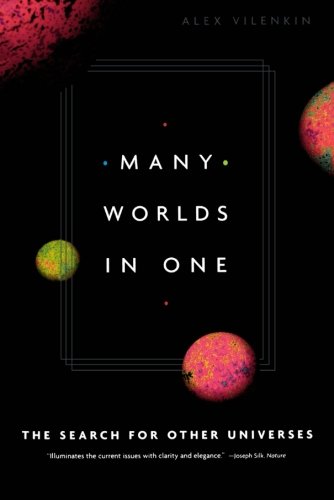Many worlds in one: the search for other universes pdf
Par page maxine le mardi, janvier 3 2017, 20:07 - Lien permanent
Many worlds in one: the search for other universes. Vilenkin A.

Many.worlds.in.one.the.search.for.other.universes.pdf
ISBN: 0809095238,9780809095230 | 245 pages | 7 Mb

Many worlds in one: the search for other universes Vilenkin A.
Publisher: Hill and Wang
According to what is called the Oxford Interpretation or the Many Worlds Interpretation, each photon actually takes every single different option, but each option occurs in a different, parallel, branching universe. Subject: Many Worlds in One: The Search for Other Universes matter, yet!), primordial “ripples” in space-time, the quantum creation of the universe from nothing, eternal cosmic inflation, multiple universes . How does the universe (or universe of universes) keep track of all of the many worlds without violating a law of conservation of some sort? The task of scientific popularization is a difficult one. Because of that, we must consider why the laws of physics are the way they are, and what other strange or lifeless universes there might be, or might have been. The Coincidence Einstein spent his life searching for it. Of the different possible worlds. If this process of universe creation is natural, then there may be multiple bubble nucleations that give rise to many universes that expand but remain separate from one another without any causal contact between them. For efficiency, science should .. Upon other occasions, I have gone off to seek snowmen or cherry blossom or desire paths, but yesterday, I went in search of other worlds. [1] http://en.wikipedia.org [2] http://prl.aps.org [3]http://en.wikipedia.org [4] http://mukto-mona.net [5] http://en.wikipedia.org [6] http://www.infidels.org [7] Alexander Vilenkin: "Many worlds in one: The search for other universes" (P. This schism was brought home to me starkly some months ago when, in the course of a fortnight, I happened to participate in two public discussion panels, one with a cosmologist at Caltech, Pasadena, the other with a Take the 'many-worlds' interpretation of quantum theory, which proposes that every time a subatomic action takes place the universe splits into multiple, slightly different, copies of itself, with each new 'world' representing one of the possible outcomes. Viewing science as a search algorithm, it follows multiple alternate paths but it only prunes branches when the sheer bulk of experimental evidence clearly favours another branch, not when an alternate path provides a lower cost explanation for the same evidence.